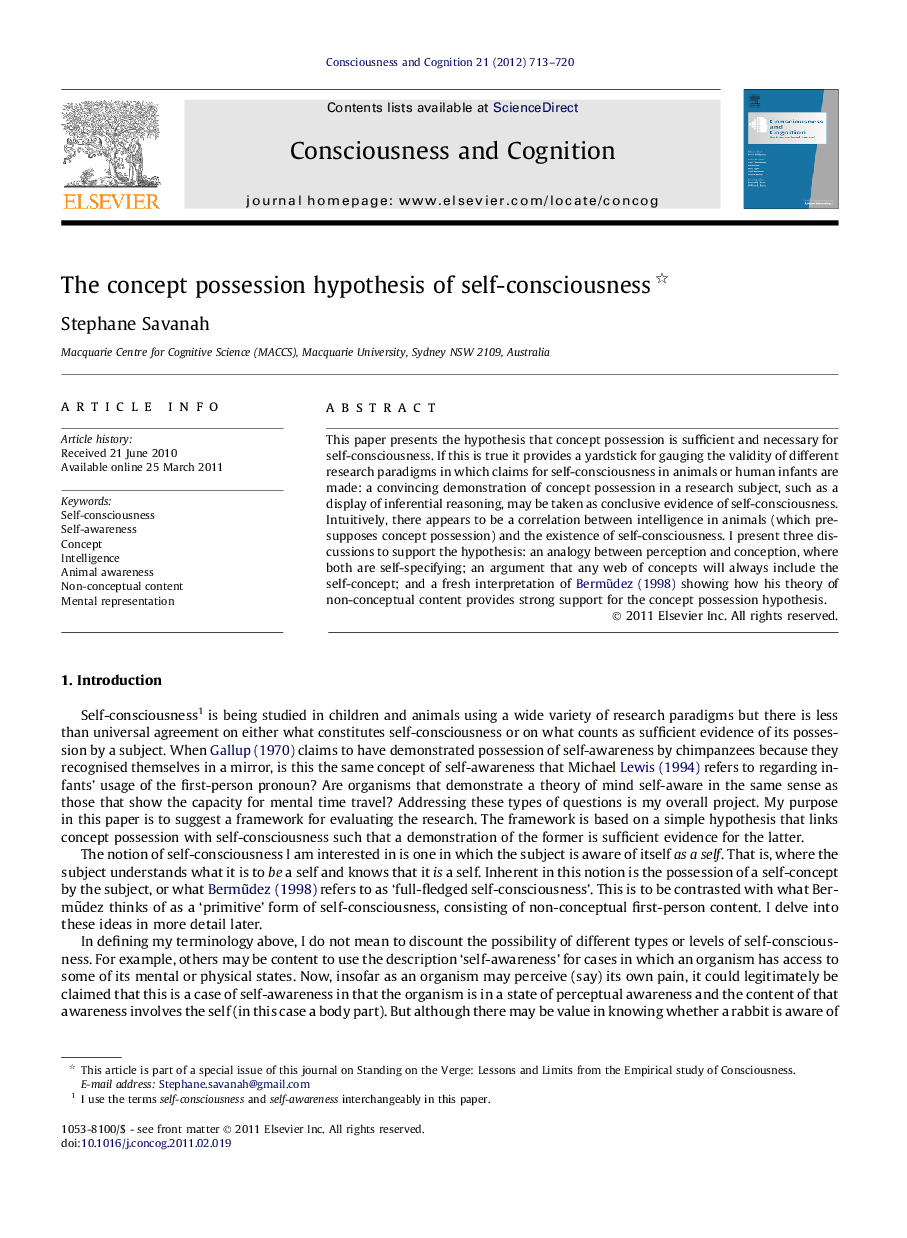| Article ID | Journal | Published Year | Pages | File Type |
|---|---|---|---|---|
| 10458623 | Consciousness and Cognition | 2012 | 8 Pages |
Abstract
This paper presents the hypothesis that concept possession is sufficient and necessary for self-consciousness. If this is true it provides a yardstick for gauging the validity of different research paradigms in which claims for self-consciousness in animals or human infants are made: a convincing demonstration of concept possession in a research subject, such as a display of inferential reasoning, may be taken as conclusive evidence of self-consciousness. Intuitively, there appears to be a correlation between intelligence in animals (which presupposes concept possession) and the existence of self-consciousness. I present three discussions to support the hypothesis: an analogy between perception and conception, where both are self-specifying; an argument that any web of concepts will always include the self-concept; and a fresh interpretation of Bermũdez (1998) showing how his theory of non-conceptual content provides strong support for the concept possession hypothesis.
Related Topics
Life Sciences
Neuroscience
Cognitive Neuroscience
Authors
Stephane Savanah,
